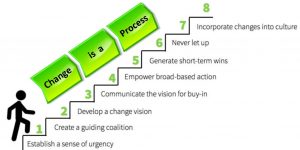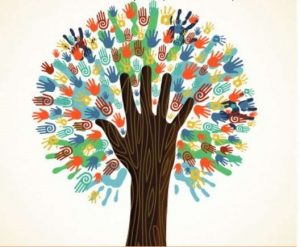That change is inevitable is often such a rude shock to many that would rather the status quo is maintained. To they that are on the cushioned edge, they that eat from silver plates and spoons, and those whose meals are numerous and well-balanced, the thought of change is often an unwelcome death knell. To those that dwell on the flip side of the coin, they whose basic needs are luxuries, and they that befit the title Biblical Lazarus, the desire and the hope for change is a nostalgia. For the latter, instigating and push for change befits the title social transformation.
For the former, hanging on is the only journey that they know, advocate and sell out to the consumers. They device numerous tools to ensure the maintenance of the status quo. With the fear of losing the prey, they posit that change would certainly be for the worst. If things dare change, we could end up in anarchy. Of course they can cite numerous phenomena from history, ensuring that the worst is elucidated. Listeners and non-critical recipients certainly see this scary side of change.
 As masses crave for change, the very group quickly crafts a method of pseudo-change. They instigate the move and ensure that they have on board only they that are their subjects and hands. They take on their rightful positions masterminding the process, shrewdly convincing all, that they have the best interests of the masses. Any questions posed to the process are looked at as insolence; the instigators cannot be but rebels. Quotes from Scriptures and from history are well crafted to sell their discourse. With their paid-for visibilities, only a critical mind would unravel the riddle.
As masses crave for change, the very group quickly crafts a method of pseudo-change. They instigate the move and ensure that they have on board only they that are their subjects and hands. They take on their rightful positions masterminding the process, shrewdly convincing all, that they have the best interests of the masses. Any questions posed to the process are looked at as insolence; the instigators cannot be but rebels. Quotes from Scriptures and from history are well crafted to sell their discourse. With their paid-for visibilities, only a critical mind would unravel the riddle.
History does embrace change. The very thought of history admits and presupposes change. For there to be nature, there has to be dynamism. To be natural is to change, and to be artificial is to fight against change. Blessed are they that foresee change coming, accept its dynamism and place themselves fitting to profit from the change. Indeed those are the wise. To see the need for change and to be an initiator and catalyst to it, is to be socially transformative. A closer look at universal trends informs where the world is and where it is headed. Civilization moves Eastwards (Arnold Toynbee). Any critical redress of what is happening on one’s east can certainly shed light.
Society cannot negate the process of change.
The human being only has three roles to play in the face of change.
The first is to unsuccessfully oppose change. This leads to futile fights and at times facades of winning. The reality though is that soon the waves sweep the concerned persons condemning them into the abyss of the forgotten. Had they known!
The second is to be a passive recipients of change.
Like a floating leaf on a river, the calm mood as it is swept away afloat is notable. This perhaps is the docility that befits a believer whose entire trust is in the Supreme Deity. While not exactly able to deal with the anxieties of the unknown destinations, there is a sure acceptance that a force greater than oneself is there in change.
 The third category is of the social transformers. The size of the area of command is not exactly the issue. The numbers that one controls may never be the concern.
The third category is of the social transformers. The size of the area of command is not exactly the issue. The numbers that one controls may never be the concern.
Above all, the realization that there is need for change, the identification that some can join hands to effect change, and the being part of the change in whatever way one befits possible, is social transformation.
With such wisdom, one cannot but fail to place themselves in a suitable position when the change happens. Since one may never exactly live to enjoy the outcome of the change since even change changes, it is worth amusing oneself with and during the process.
As we do not struggle to go too far to see they that fight change, they that make futile efforts to shape change for selfish gains, we cannot but cherish the force of change. For they that solicit change, welcome into the aboard of social transformers.
Be the advocates to social wellness. Fear should never be a deterrent for the future shall judge you with benevolence as with malevolence it judges those on the opposite side of change.
Change generates new and exciting experiences. Its newness makes life worth living.
Looking at our societal microcosms, extending a perception on the political arenas, and incorporating the faith based heads, there is need to look at the position that informs the leaders from the three areas.


